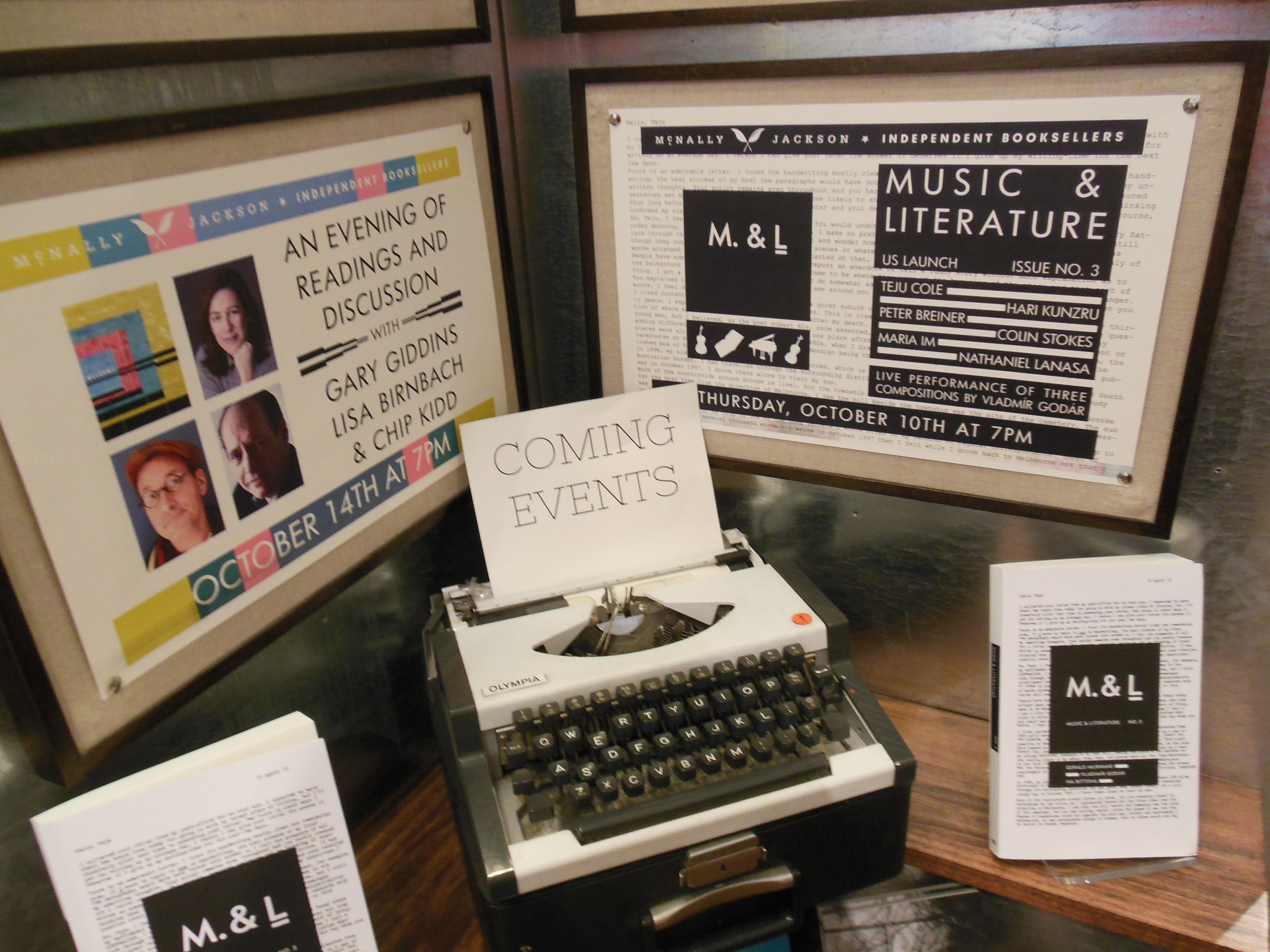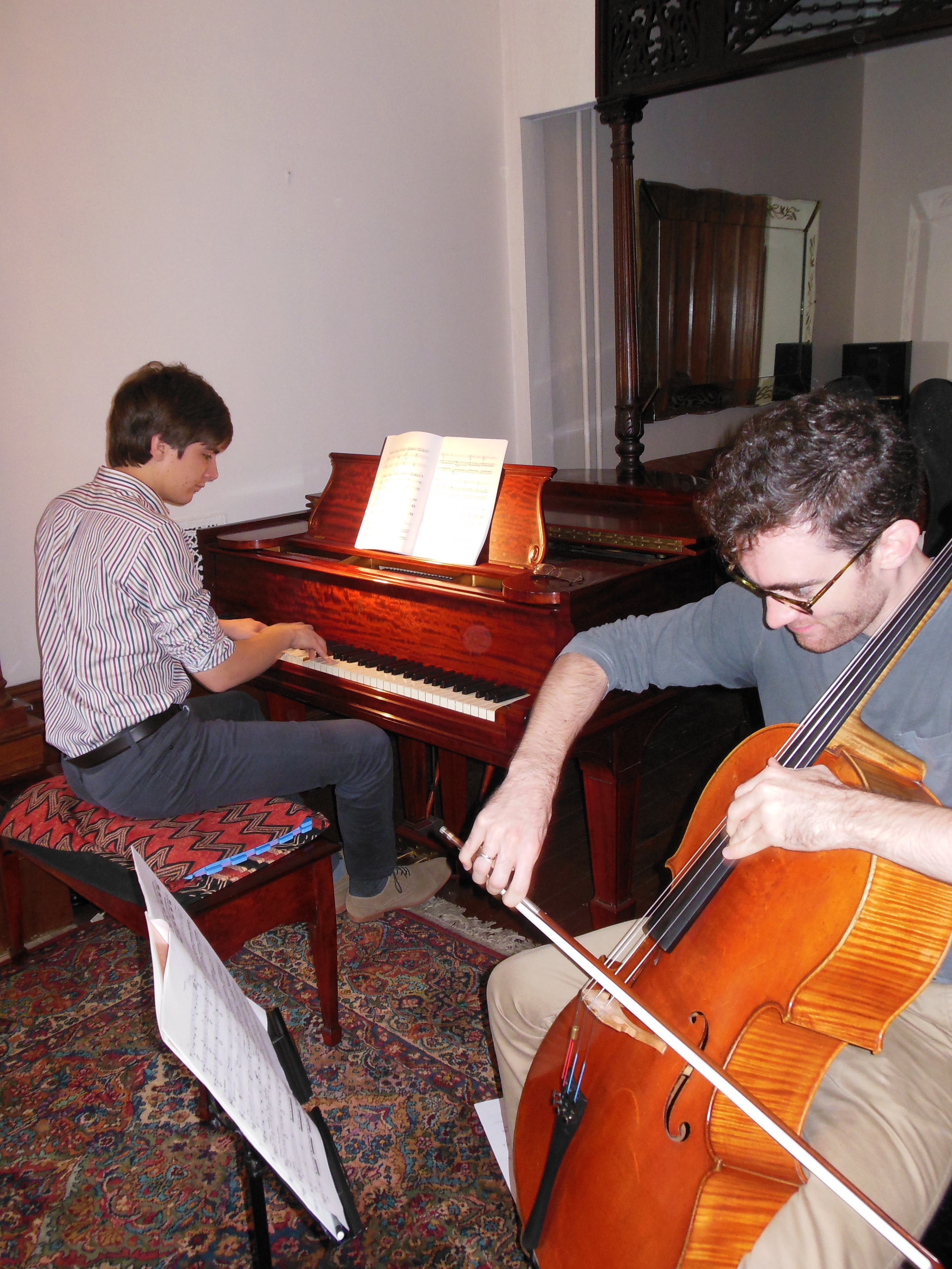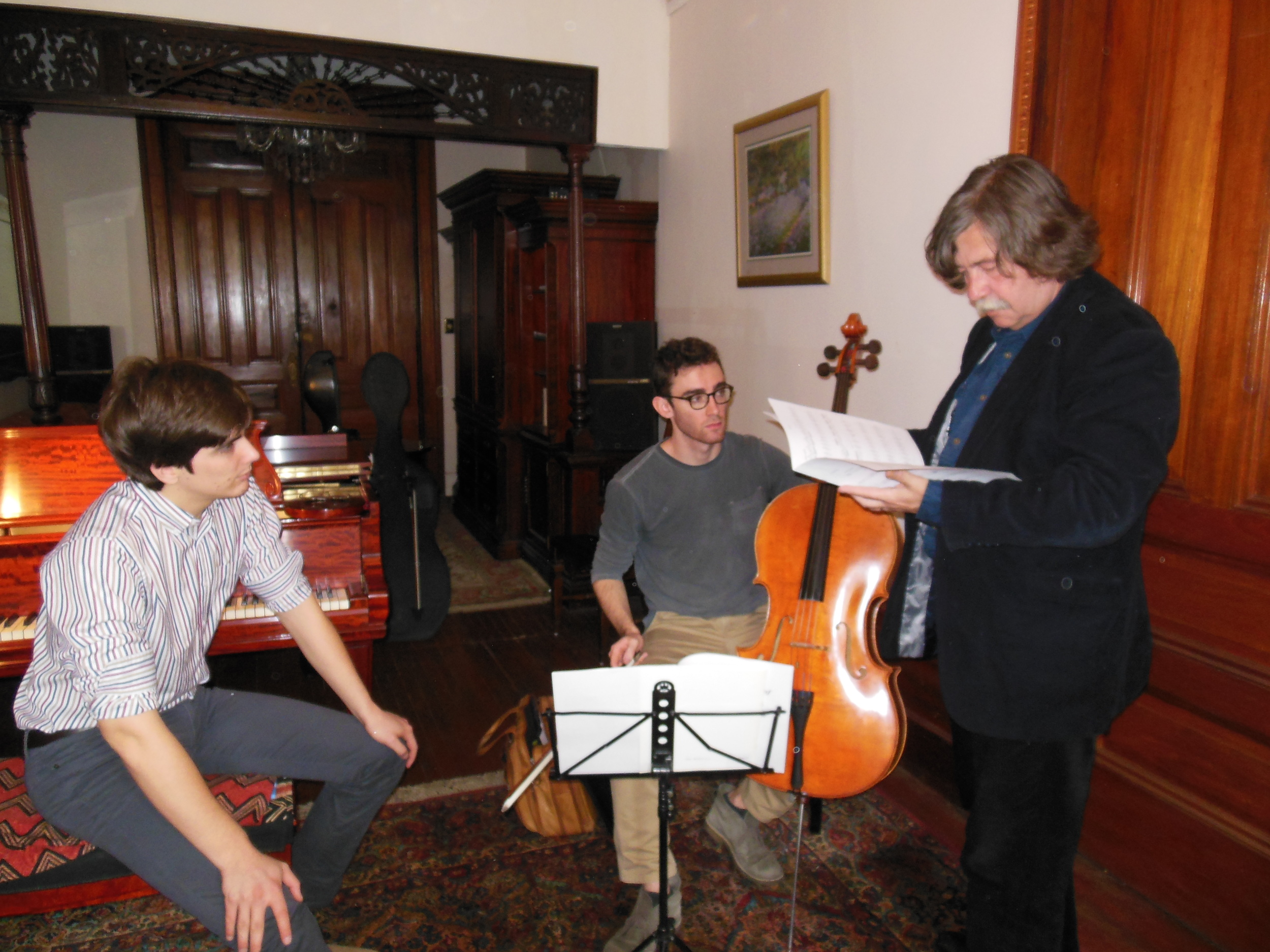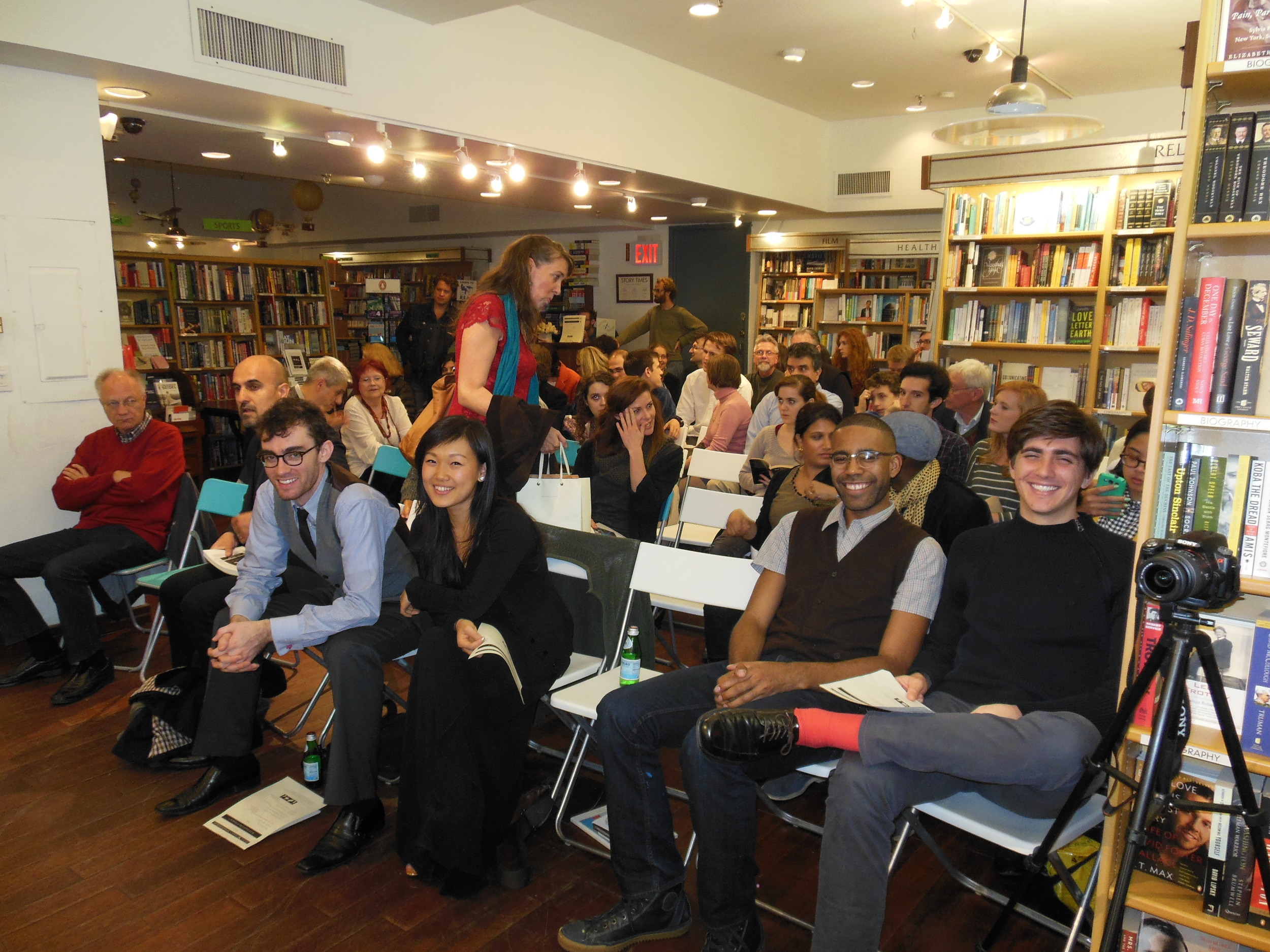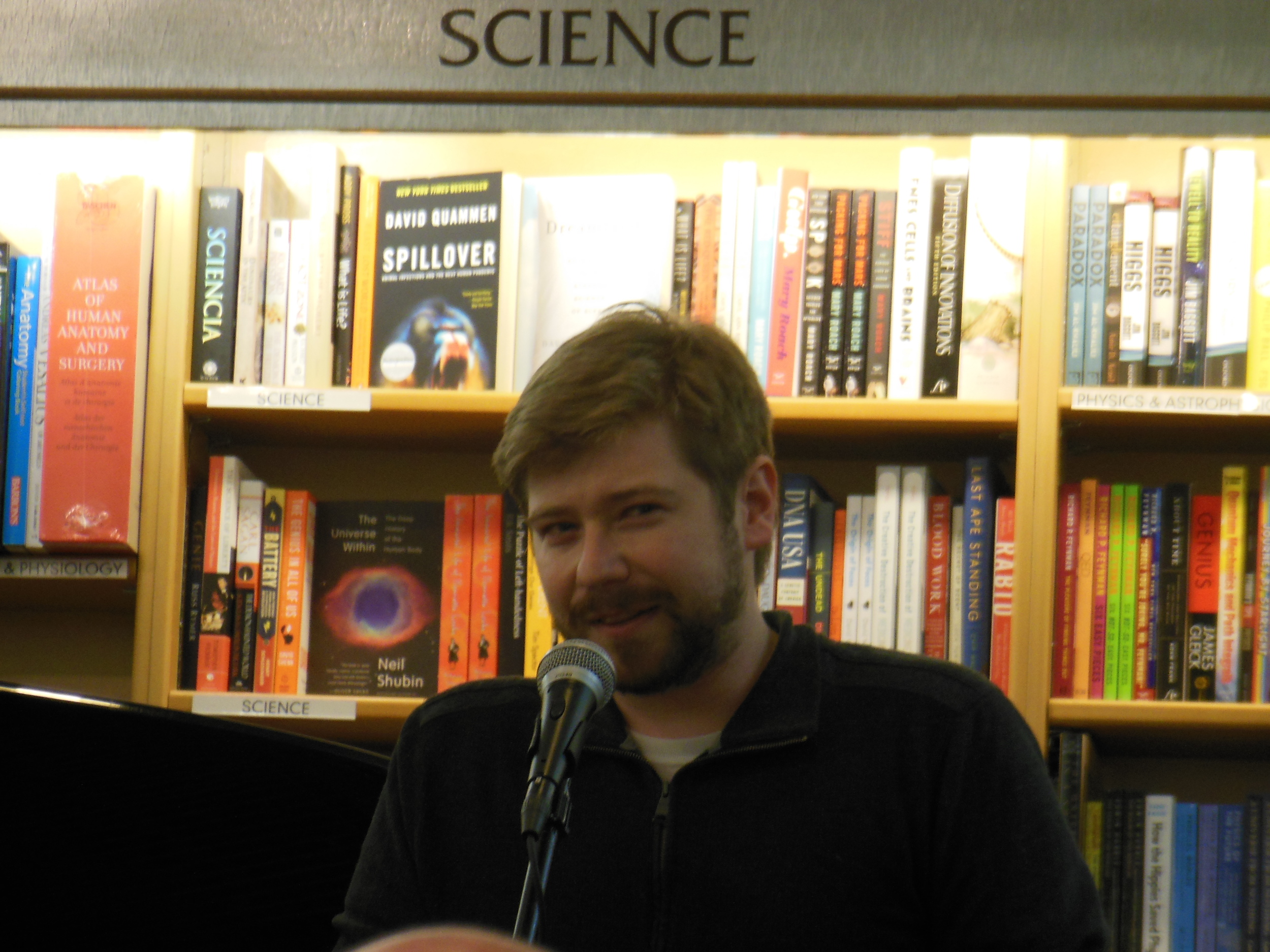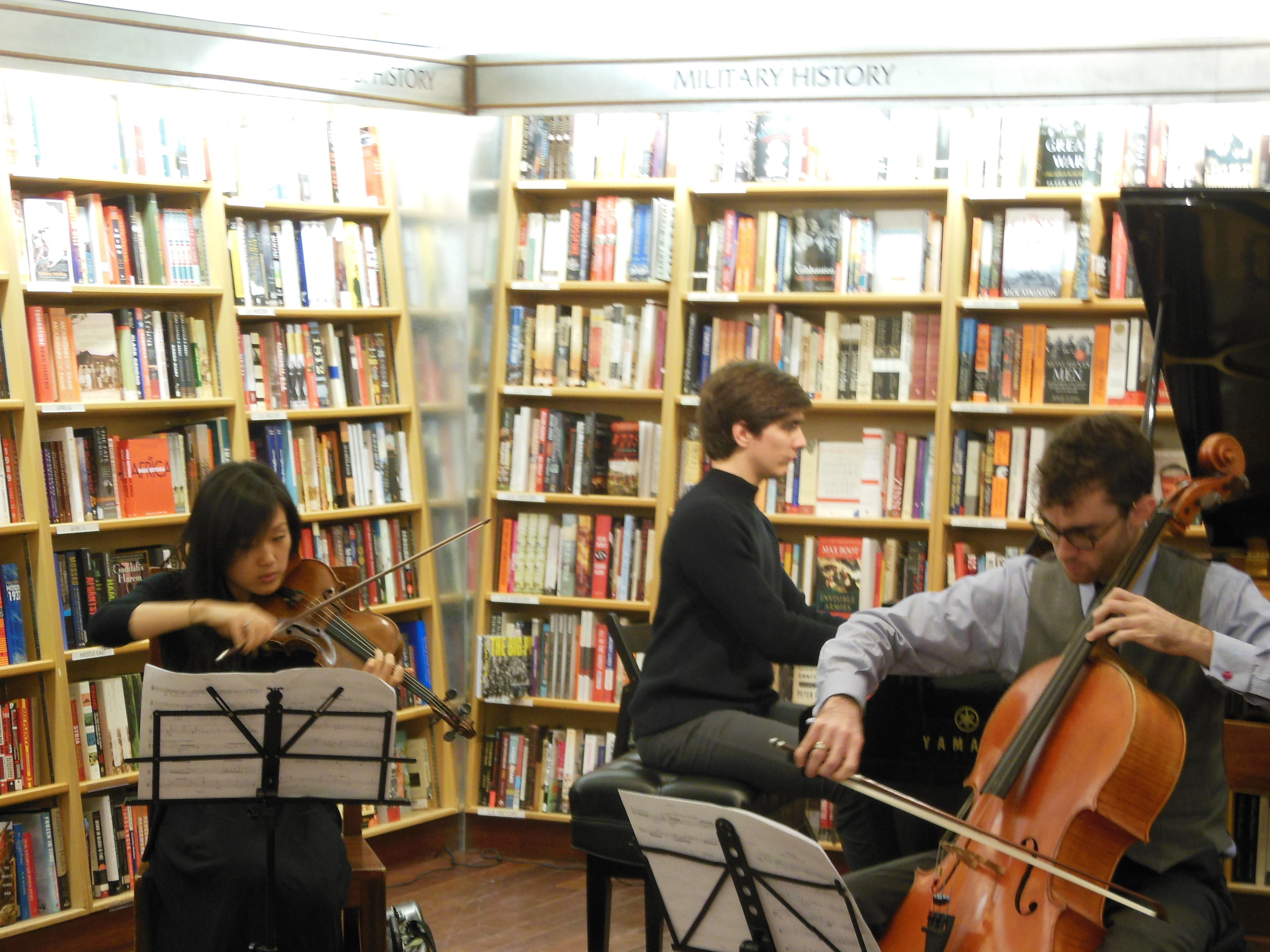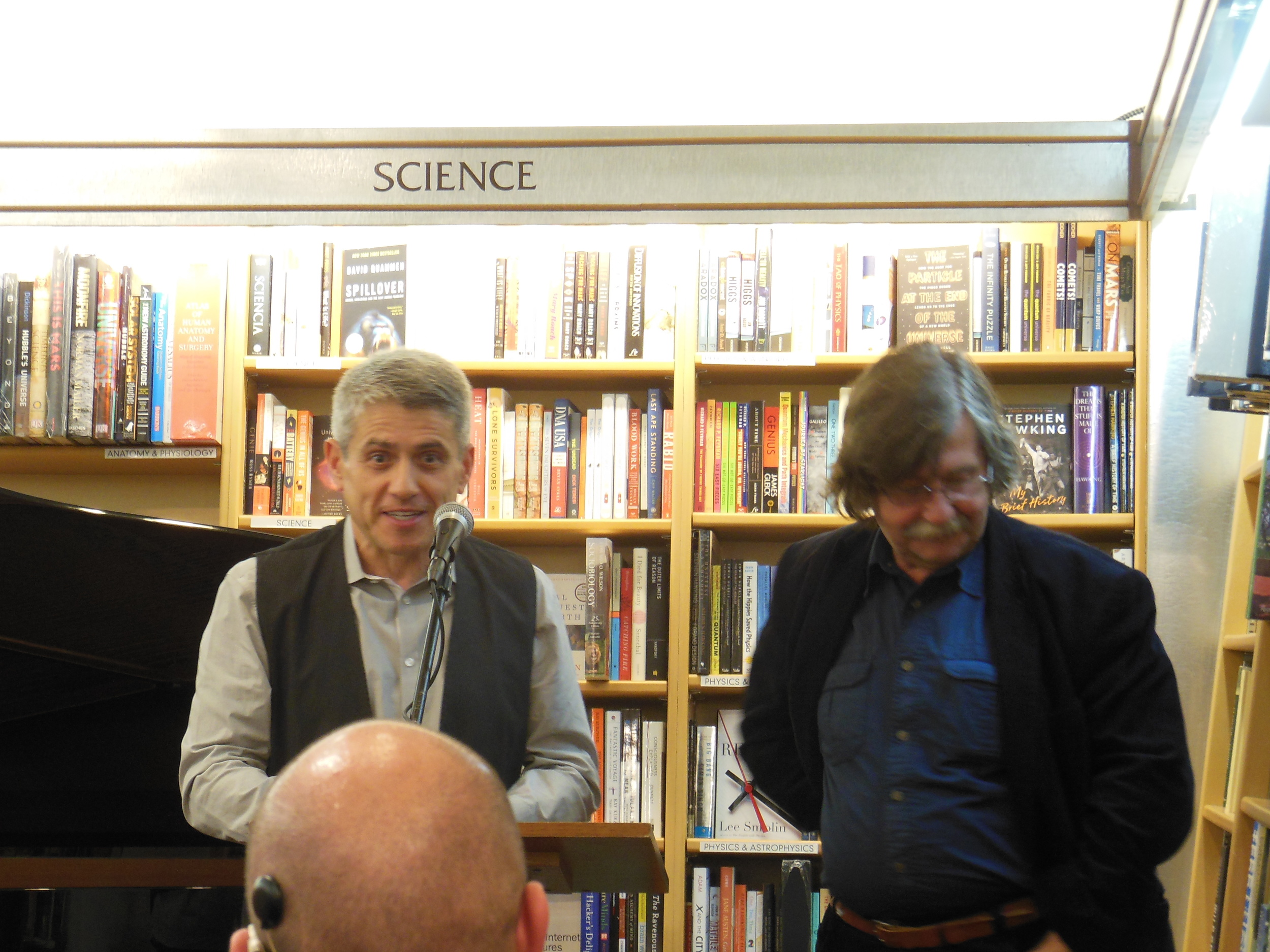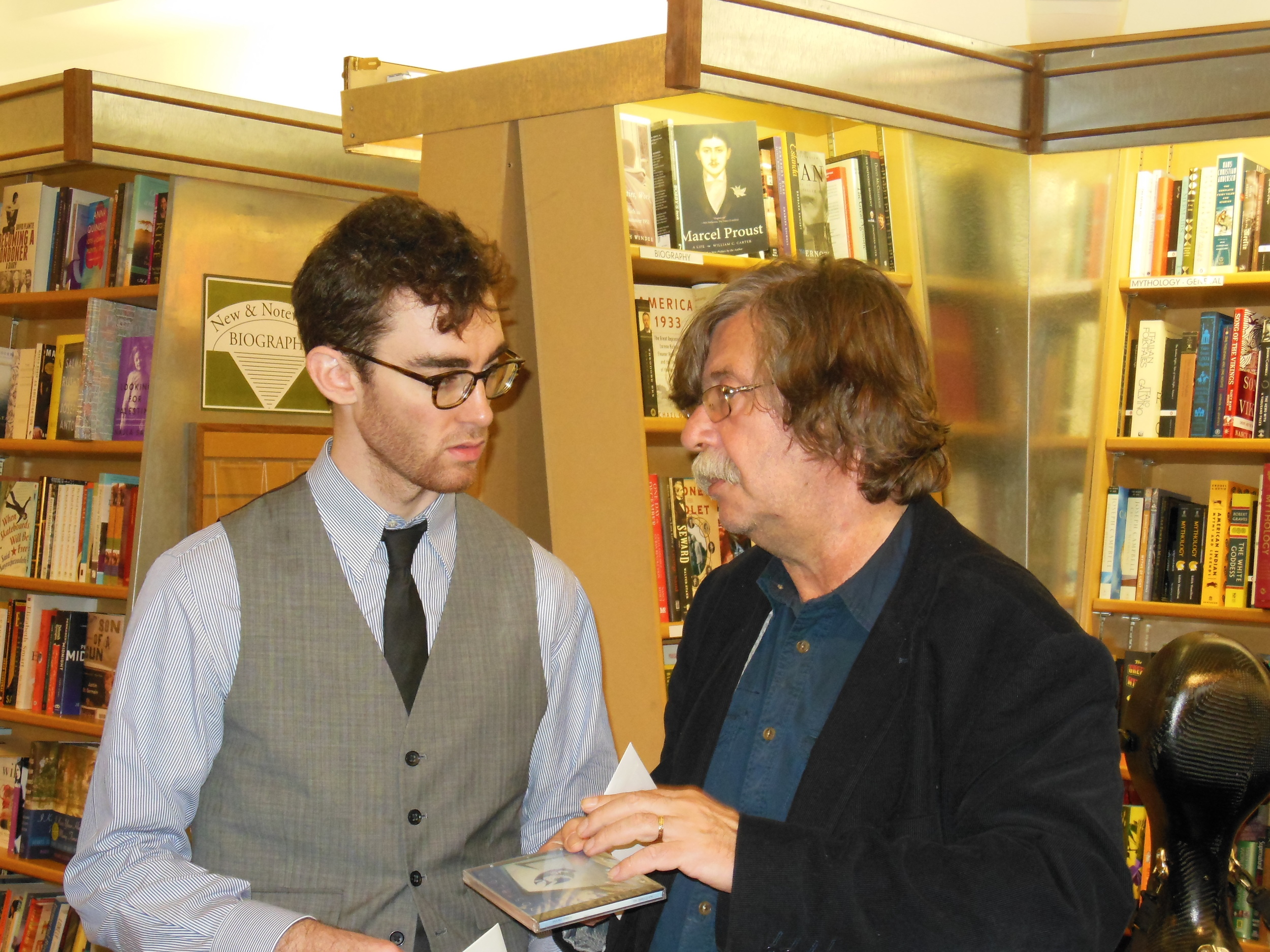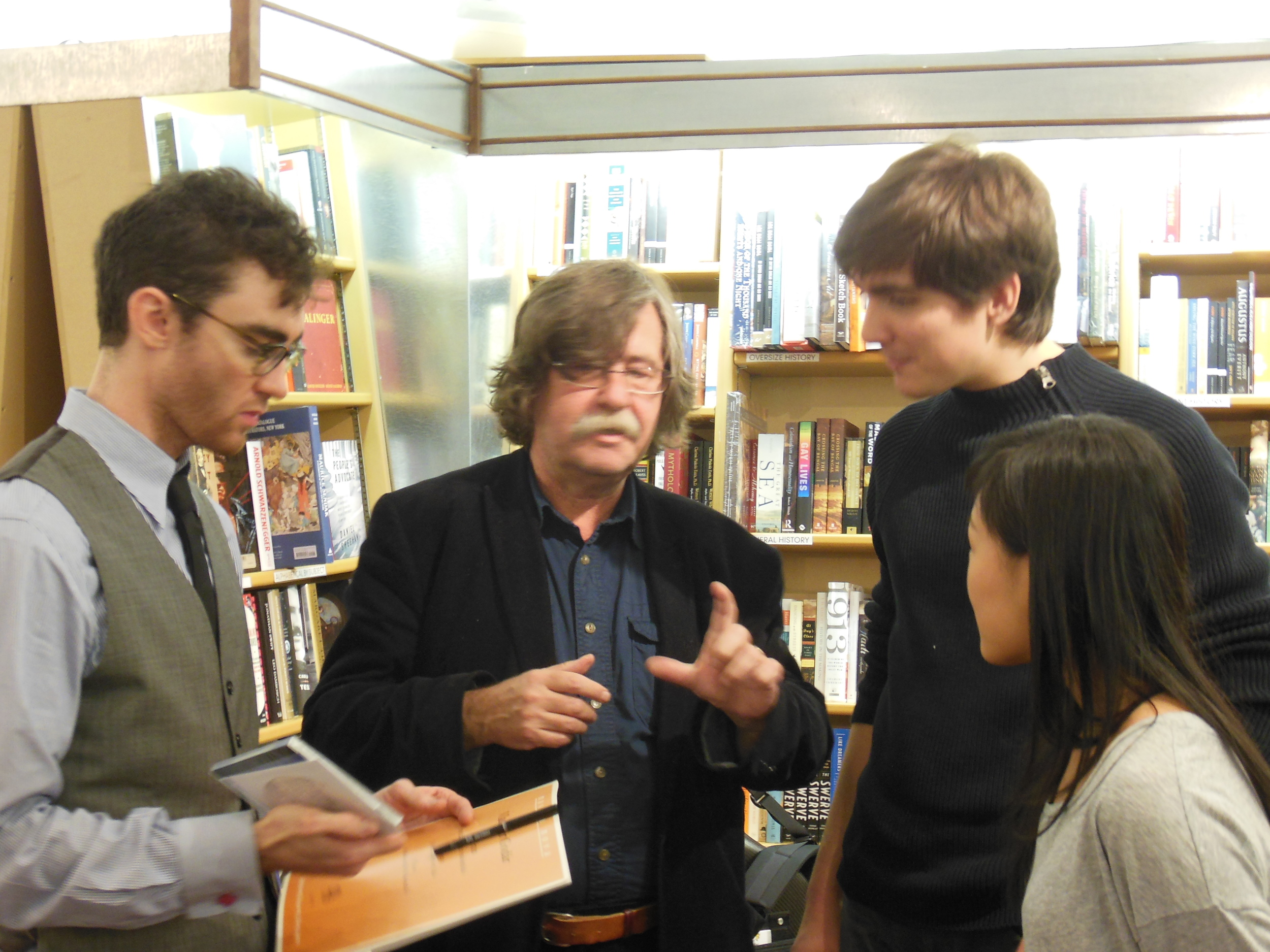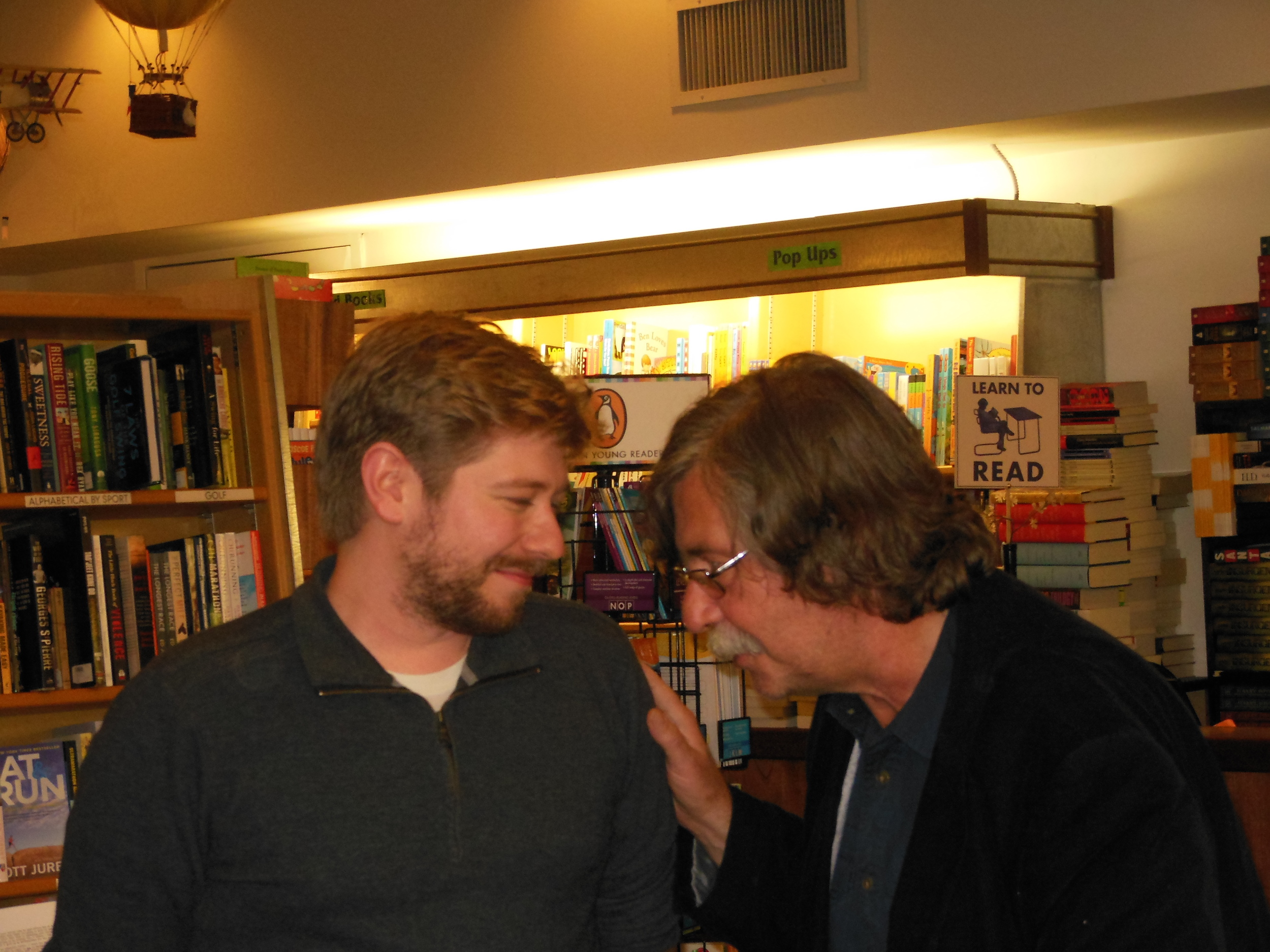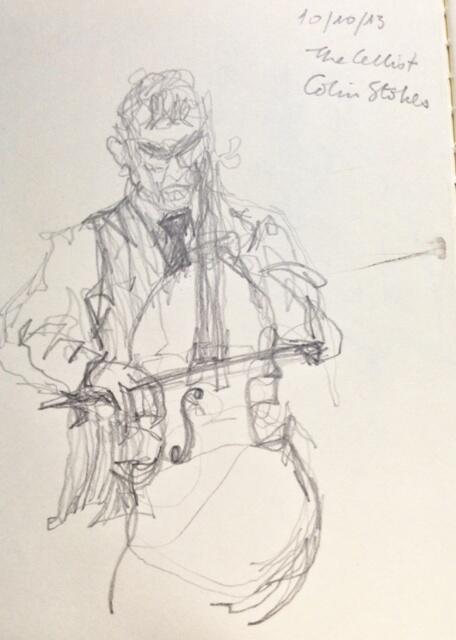the new york city Launch of Music & Literature No. 3: McNally Jackson Bookstore / 10 Oct 2013
There wasn't a precedent, in my mind at least, for the event announcing the release of Music & Literature no. 3, a publication dedicated not just to the writing of the remote Australian author Gerald Murnane, but also to the musical compositions of Vladimír Godár and Iva Bittová. For as long as I’ve been a reader of Murnane, his work has seemed like a secret. The launch, then, was something of a contradiction for me: Murnane, the author who never has and never will fly in an airplane, seemed the last artist for whom people would gather in a public space, much less one half a world removed from his secluded home in the outback.
M&L: "Where's the strangest place you've ever delivered a piano?" Piano mover: "I don't know you well enough to answer that."
The first sign that things would be fittingly unusual was the grand piano in the basement of McNally Jackson Books, which by the force of its unfamiliar presence alone seemed to push the books back further than normal into their shelves. It owned the room. When the trio of Colin Stokes, Maria Im, and Nathaniel LaNasa performed Talisman by Godár, after an introduction from Music and Literature’s editor, Taylor Davis-Van Atta, the uncommonness of the scene was both amplified and done away with.
Left to right: Maria Im (violin), Nathaniel LaNasa (piano), and Colin Stokes (cello) performing Vladimír Godár's Talisman.
The music suddenly made sense of the otherwise foreign piano, but its intensity almost mocked the normally cozy, sensible bookroom filled with temporary seating. Hari Kunzru took the floor next to read his piece, “An Encounter With Gerald Murnane,” which might either have been strict nonfiction, a documentary essay intended to capture with total clarity a chance meeting between two writers, or a pure fabrication based on a shameful fantasy of its author, and nothing in between.
Hari Kunzru reads from his contribution to Music & Literature no. 3. Photo: Katarina Godár
The discussion that followed, between pianist Peter Breiner and Godár (who had flown in from Bratislava for the event), was both impossible to understand and completely engrossing. They stole the show, in a certain absurd way. The pair talked at length, Breiner translating Godár into English for the crowd, about their longstanding friendship, being unfairly judged by chainsaw salesmen, and sinking a university textbook into a lake in Soviet Czechoslovakia. At some point, I think, in passing, they made mention of Godár’s musical compositions. The novelist Teju Cole then read from the letters he and Murnane had exchanged for the occasion of M&L no. 3. Murnane to Cole: “Yours is an admirable letter. I found handwriting mostly clear and remarkably even.” Cole then described in wonderful detail the pilgrimage he’d recently made to meet Murnane in the regional Australian town of Goroke. The launch was over after a performance of Godár’s fantastic Sonata in Memory of Viktor Shklovsky, a piece of music that, no matter how hard I listened, my eyes shut, my head tilted to one side, I couldn't connect to the Russian formalist critic – other than that it was a demanding and fascinating performance to behold.
Teju Cole sings the praises of Australian writer Gerald Murnane. Photo: Katarina Godár
In the company of other Murnane-readers, I’ve noticed, people tend to ask each other, “How did you come across him?” (And, even though I’m not knowledgeable about music, I got the impression from people I spoke to that night that Godár’s music is similarly passed from hand to hand.) The wonderful thing about the magazine Taylor has put together is that now, quite plausibly, a common answer to such a question might be, “M&L no. 3.” Murnane isn’t an author whose work will ever have a huge readership. It doesn’t offer solutions; it distorts, amplifies, and deepens the world. But the best literature – I think it’s been said somewhere by someone – resists interpretation. Anyone who was at McNally Jackson on October 10th for the launch of Music & Literature no. 3 now knows that certain magazine launches do too.
–Will Heyward, a writer and editor of Higher Arc
